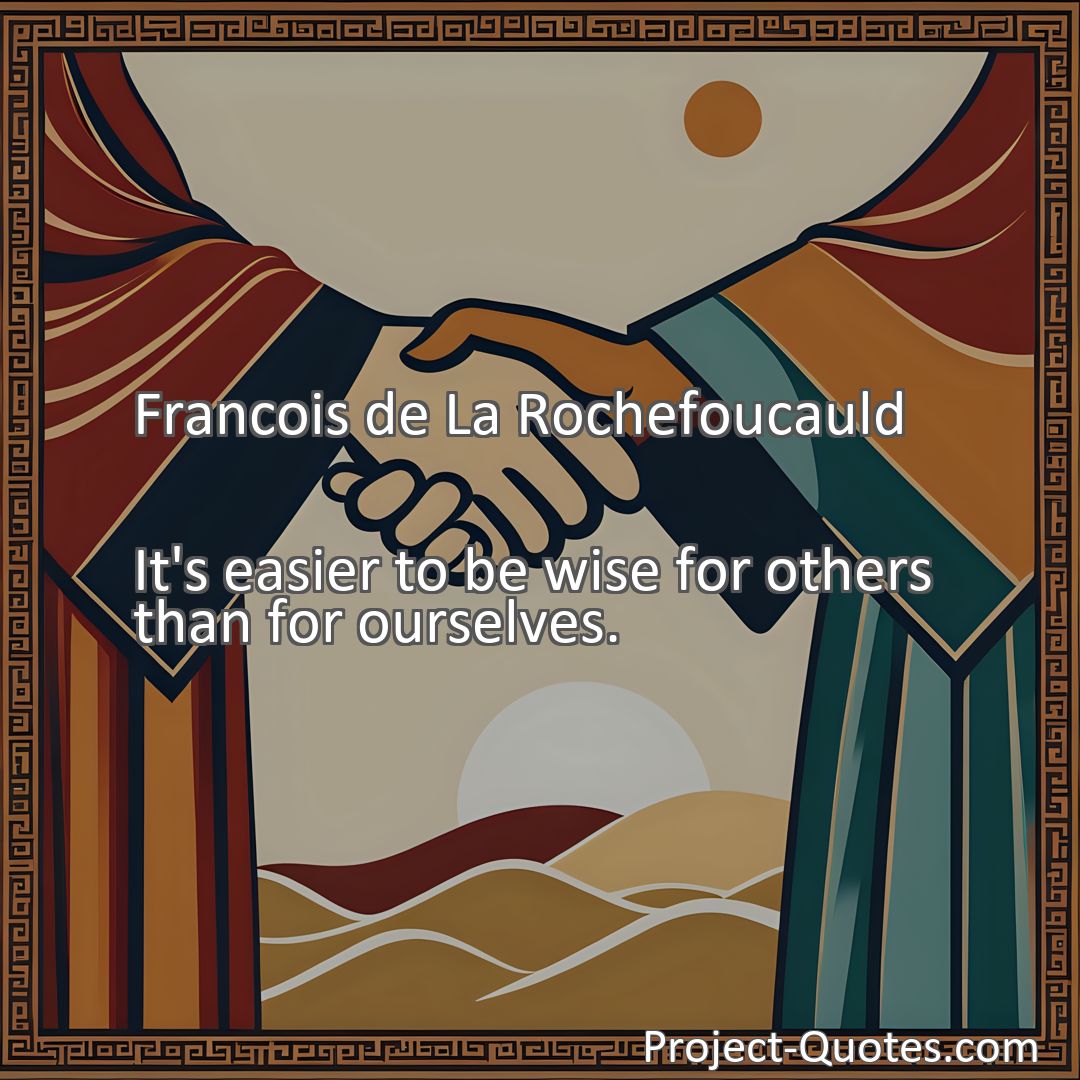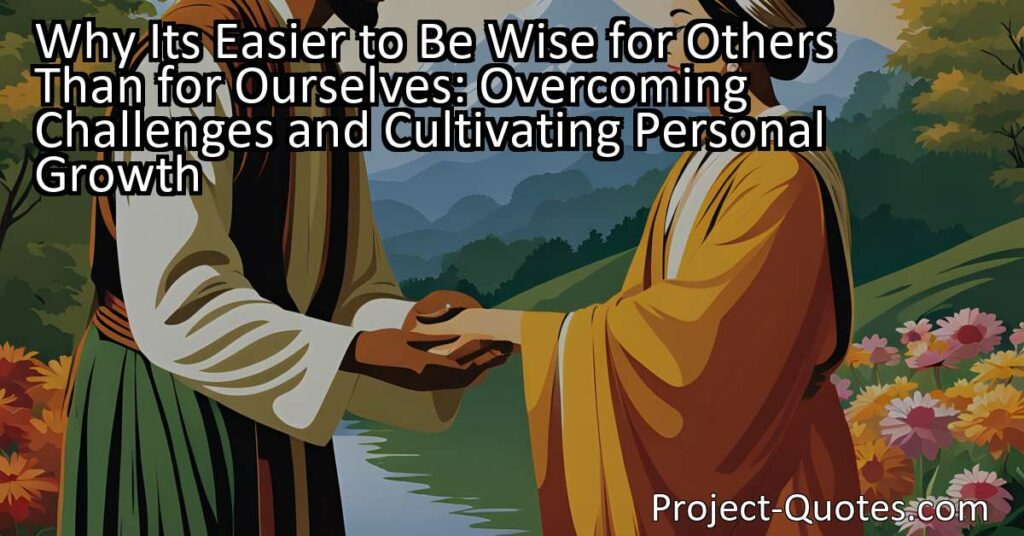It’s easier to be wise for others than for ourselves.
Francois de La Rochefoucauld
“Why It’s Easier to Be Wise for Others Than for Ourselves” explores the idea that it’s often easier to give advice and wisdom to others than it is to apply it to our own lives. This article delves into the reasons behind this phenomenon, including the role of introspection, biases, emotional attachment, and the fear of judgment. However, by seeking outside perspectives, practicing self-compassion, and adopting a growth mindset, we can gradually become wiser in our own lives.
Table of Contents
Meaning of Quote – It’s easier to be wise for others than for ourselves.
Have you ever noticed that it’s often easier to offer advice and wisdom to others than it is to apply it to our own lives? This idea suggests that while we may possess knowledge and insight, we often struggle to apply it to our own situations. Francois de La Rochefoucauld, a French author from the 17th century, once said, “It’s easier to be wise for others than for ourselves.” In this quote, La Rochefoucauld captures a truth about human nature that continues to resonate today.
When we look at this quote, it’s important to acknowledge that human beings have a natural tendency to see things from an outside perspective. It’s often easier to identify the flaws in others’ actions or decisions because we are not emotionally invested in their outcomes. We can look at a situation objectively and offer advice based solely on what we perceive to be the best course of action.
However, when it comes to ourselves, our emotions come into play. We become entangled in our own desires, fears, and insecurities, which can cloud our judgment. What may seem like obvious wisdom when applied to someone else’s life becomes difficult to apply when it pertains to our own.
One reason why it’s easier to be wise for others than for ourselves is the power of introspection. When it comes to self-reflection, we tend to fixate on our flaws and weaknesses. It’s easier to see the negatives in ourselves because we are intimately aware of our own struggles. This self-criticism can prevent us from objectively evaluating our own situations and making wise decisions.
Additionally, our personal biases often play a significant role in hindering our ability to be wise for ourselves. We have ingrained beliefs, fears, and desires that influence how we perceive the world around us. These biases act as filters, distorting our ability to objectively assess our own lives and make truly wise choices. It’s difficult to overcome these biases and see our own situations with the clarity that we have when offering advice to others.
Another factor that contributes to our struggle to be wise for ourselves is our emotional attachment to the outcomes of our decisions. When it comes to making choices about our own lives, the stakes are much higher. Our choices directly impact us, and we have a vested interest in the outcome. This emotional investment can cloud our judgment and prevent us from making rational and wise decisions.
Furthermore, our tendency to seek validation from others often influences our ability to be wise for ourselves. We value the opinions and approval of others, and this can lead us to make decisions based on what we think others want or expect from us. We may fear judgment or rejection, causing us to make choices that align with societal norms rather than what we truly believe is wise or right for ourselves.
Despite these challenges, there are ways to overcome the difficulty of being wise for ourselves. One avenue is seeking out the perspectives of trusted confidants or mentors. By engaging with others who have our best interests at heart, we can gain new insights and broaden our perspective. Listening to the advice and perspectives of others can help us break free from our biases and see our own situation from a more objective point of view.
Another approach is practicing self-compassion and self-reflection. By cultivating self-awareness and embracing our imperfections, we can navigate our own lives with greater wisdom. Recognizing that we are works in progress and that it’s natural to make mistakes allows us to learn from our experiences and make wiser decisions going forward. Self-compassion opens the door to personal growth and offers us the courage to confront our flaws and make the necessary changes.
Moreover, adopting a mindset of curiosity and constant learning can also enhance our ability to be wise for ourselves. By embracing a growth mindset, we acknowledge that we always have room for improvement and that wisdom is a lifelong pursuit. This mindset encourages us to seek out new knowledge, reflect on our experiences, and continually evolve our perspectives. Through this ongoing process of learning and growth, we can better apply wisdom to our own lives.
In conclusion, the wisdom we possess often falls short when it comes to applying it to our own lives. We can learn a lot from Francois de La Rochefoucauld’s quote, “It’s easier to be wise for others than for ourselves.” Our emotional attachment, biased perspectives, fear of judgment, and individual insecurities can hinder our ability to make wise decisions when it comes to our own lives. However, by seeking outside perspectives, practicing self-compassion, and embracing a growth mindset, we can gradually become wiser in our own lives. Ultimately, the journey towards greater wisdom is a lifelong one, and by continuously learning and reflecting, we can navigate our own lives with a little more wisdom each day.
I hope this quote inspired image brings you hope and peace. Share it with someone who needs it today!


